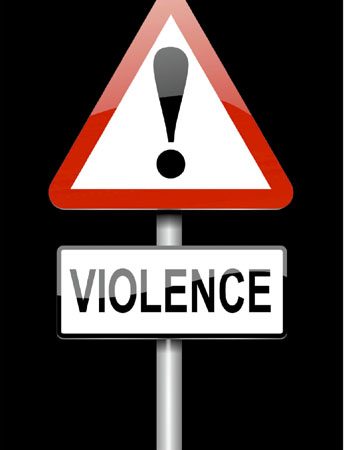EDUCATING SRI LANKA
BUSTING THE BULLIES
Goolbai Gunasekara demands timely action against bullying in schools and universities

University ragging is appalling. In Sri Lanka, the methods used verge on sadism and reveal a psychotic nature in some of our undergraduates. Undergraduates in most universities in the world comprise about eight percent of the university population and it is this small group that engages in such antisocial acts.
I set the figure at eight percent as I don’t have any statistics about Sri Lankan undergrads. This figure is cited by American universities about their own troublemakers although their activities seem almost playful when compared with our own monstrous lot.
How does only eight percent of the student population manage to control the remaining 92 percent?
They do so through sheer bullying and are accompanied by a completely intimidated band of followers. Students have confessed that they wish they could get on with their business of learning without having to strike, cut classes, stage public protests and bring the entire university system into disrepute because of a few malcontents.
Yet, many youngsters who enter university are soon browbeaten by the aforesaid minority. They go with the flow so to speak… and the flow is allowed to roll on simply because no effective action is taken against the culprits by those in positions of authority.
Government fears a student uprising. But an uprising will not occur if leaders and instigators are put behind bars for a very long time, and denied further contact with the university.
The authorities should learn that if they can rid the universities of these disruptive elements, the majority of students will support them wholeheartedly so long as they’re assured safety from the psychologically flawed minority who operate a virtual reign of terror.
If students know that the authorities mean business, they will soon fall in line. Moreover, the malcontents may learn to their surprise that most of their contemporaries regard them as public nuisances and not heroes.
Here is a story I heard about Dudley Senanayake when he was prime minister. While playing golf with Lee Kuan Yew, who was at the time the Prime Minister of Singapore, he was informed that undergrads at the University of Peradeniya were rioting.
Dudley is said to have turned to Lee and worriedly asked what he would have done in Singapore with such a recalcitrant bunch.
“No problem,” Lee Kuan Yew is reported to have cheerfully replied, adding: “Just shoot one or two of them.” Apparently this suggestion so upset Dudley that it totally threw him off his game.
While this is undoubtedly an extreme solution, it might have been highly effective. Certainly, no one advocates shooting students but one can see the advantage of immediate and drastic action taken at the right time by those in power.
Sri Lanka may never have reached the sad condition it is in now vis-à-vis those ungrateful university students had the authorities been sensible from the beginning and stopped pandering to that recalcitrant eight percent.
Let’s then turn to bullying in schools – international schools to be precise. Does it take place? Of course it does.
Children are children after all, and it is human nature to try to flex their little muscles if they can. The point is that the principals and staff of these schools are aware of the problem and vigilant in rooting it out.
Bullying among younger kids is easily noticed. Bullying becomes far more subtle as children grow older. Again, it is the leader of a ‘gang’ that can exert an unhealthy influence if he or she is allowed to do so. In smaller populations like those in most international schools and with a fairly strong female presence in classrooms, bullying is not too easy among either sex.
Principals and teachers learn to watch out for gangs that are soon broken up. Students receive much personal attention and are guided by counsellors.
One vexatious point can be the sexual orientation of students. It is a problem that one or two schools faced head-on by having experts from outside speak to the student body about such matters. Ignorance is often the cause of bullying in this area.
Parents may also object to this particular matter being brought up at all. One meets with religious prejudice and no counsellor or principal will argue with a parent who patronisingly claims that his or her religion forbids it – as if to say all other religions permit it!
Nobody will debate the Koran, Bible, Upanishads or Dhamma with any parent. Ergo, everyone tiptoes round the subject and this general silence causes more damage than any dialogue could have done.
There is only one solution – root out ragging and bullying completely. Simply cutting off the branches of a tree has no effect for they will grow again. And so it is with bullying.



